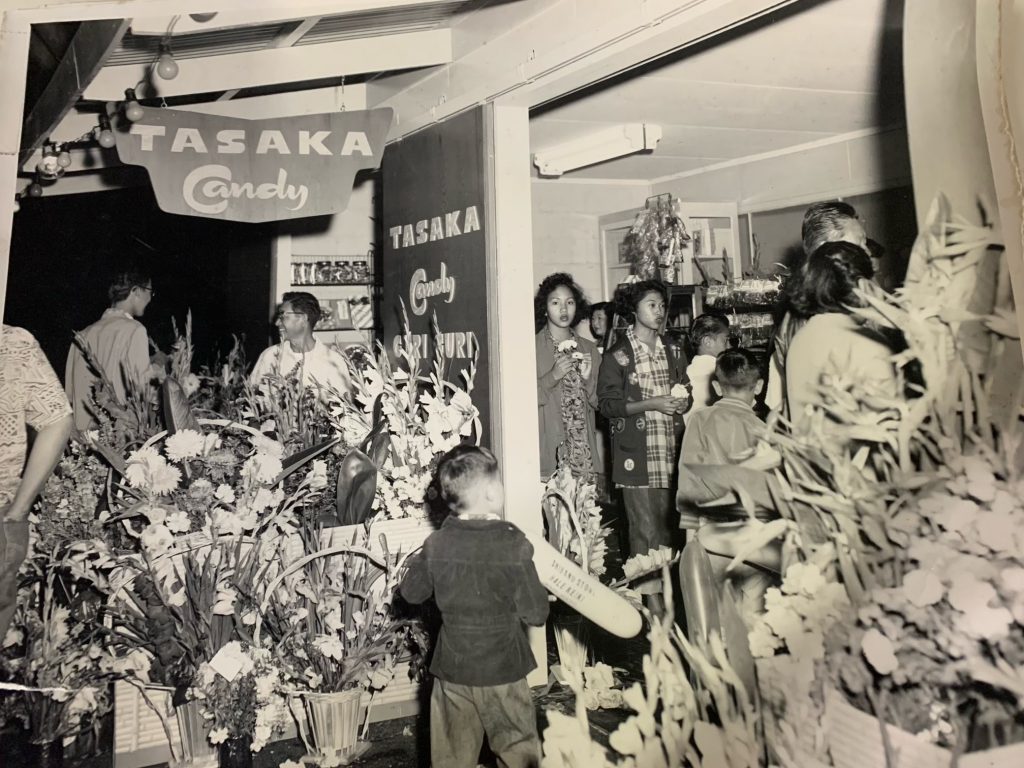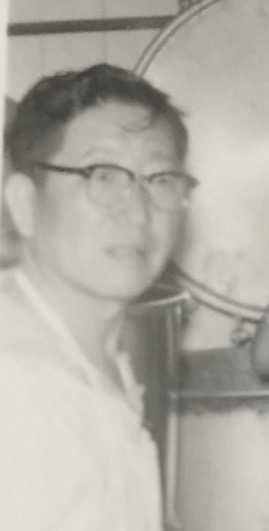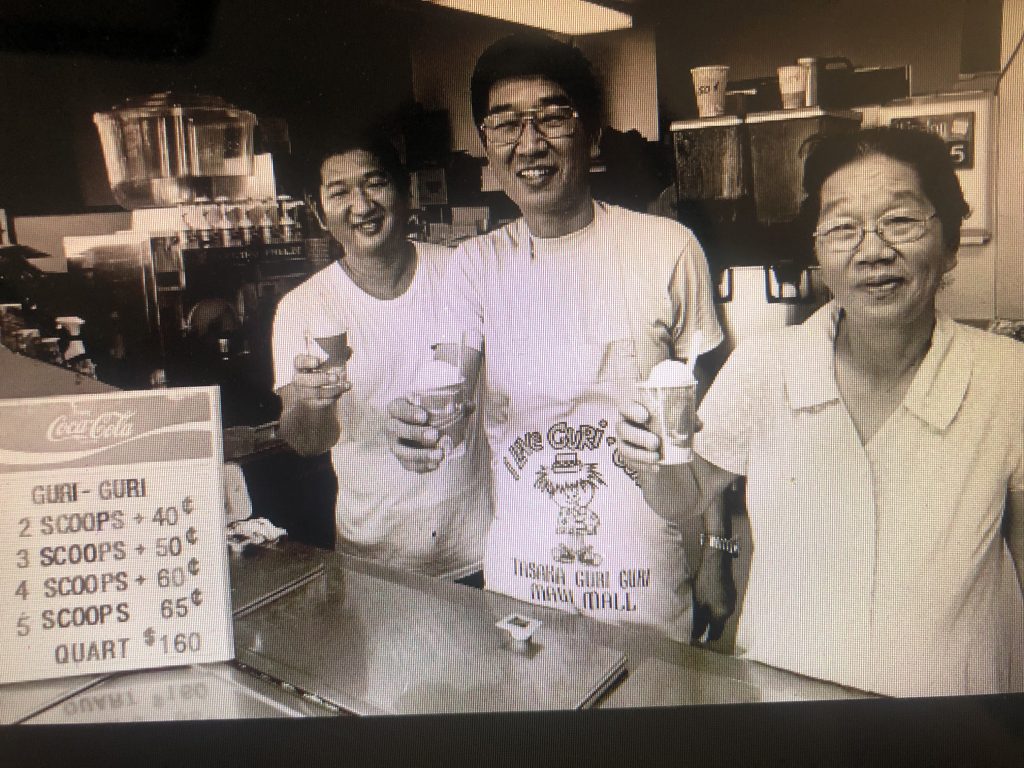Maui sherbet makers find a cool niche in sharing a family treat, tradition


When Japan merchant Jokichi Tasaka arrived in Hawaiʻi in the early 1900s, he brought with him his talent as a confectioner, making Japanese candy, including sweet rice crackers and azuki bean-filled pastries such as manju and mochi.
But it was his son Gunji who in the 1920s would eventually create a sherbet called “Guri Guri” that continues to be a popular treat on Maui today.
Family members of Tasaka Guri Guri — Gail Saito and her sister Cindy Tasaka Ing, along with their cousin Kelly Kohatsu — do a brisk business, with hundreds of customers a day. The sherbet is sold only at the store, and there’s often a waiting line outside. Since the COVID pandemic, only one family at a time is allowed inside the business to place an order.
Visitors have included Bill Clinton and recently, top 10 American Idol winner Camile Velasco, who has become a rising star as a hip-hop singer in Los Angeles known as Eli-Mac.
Tasaka Guri Guri has a refreshing light, smooth taste, not as sugary as most sherbets and not as heavy with cream as icecream. It’s sold in two flavors — pineapple and strawberry — in a cup and is about half the price of a normal scoop of ice cream at restaurants. The contents of the ingredients remain a family secret. Maui Now writer Gary Kubota interviewed Saito and Tasaka Ing.
Maui Now: A People Of Maui Interview
KUBOTA: You seem to have a good mix of customers, including visitors and residents. How does that happen?
CINDY: We rely on loyal customers and word of mouth. A lot of people say, “I used to come here as a kid, and now, I bring my kids or grandkids,” while others say, “We were told to come to get Guri Guri when visiting Maui.
KUBOTA: How much do you sell in a day?
CINDY: On busy days, which is usually on weekends or holidays, we go through more than 40 gallons of Guri Guri. Besides scoops in cups, we sell Guri Guri in quart containers for consumption on Maui.
KUBOTA: How did the Tasaka family develop this business?
CINDY: Our great-grandfather Jokichi and his wife Rise, who were Japanese immigrants, started the family business on Oʻahu, then moved to open up a shop on Maui. They sold Japanese confections like senbei, yokan, manju, mochi, and pressed sugar items, some shaped into flowers. When our grandfather Gunji Tasaka took over the business in the 1920s, he created the sherbet. We were told he he made it in a can. He would stir it in the can and freeze it. It was something to serve on hot days. We now use a machine to make the sherbet. Gunji and his wife, Yoshino, had two girls, Thelma Odo and Jean Nagao, and two boys, our father Henry Susumu Tasaka and his brother Setsuo Tasaka. Henry and Setsuo took over the business. Currently, my sister and I run the business, along with the help of our cousin Kelly.
KUBOTA: What were their thoughts in taking over Tasaka Guri Guri?
CINDY: I don’t think they had a choice.
GAIL: Yeah.
CINDY: Back then, they just did what their parents told them to do.
GAIL: Our father used to be the front counter man, and our uncle was the man working in the back.

KUBOTA: What does “Guri Guri” mean?
GAIL: This is what my father told us. It started off as Goodie Goodie. G-o-o-d-i-e. like a treat. But my father told us the Japanese people back then couldn’t pronounce that word. So it became Guri Guri.
CINDY: Our father once made other confection products. But he eventually stopped making them and focused on making Guri Guri.
KUBOTA: How has it been for you to work in the store?
GAIL: They’re a lot of happy faces. A lot of kids.
CINDY: The most gratifying things are when people talk about my dad, uncle and grandma, and remember how kind and nice they were, how they really made a positive impression on them. It’s nice to know that they are remembered in such a positive way, that our family business means a lot to so many people.
KUBOTA: Apparently, you’ve even been visited by President Bill Clinton?
CINDY: We were so excited. He’d just gotten out of office. He came to Maui for a Democratic rally at the War Memorial Gym. Before he came, the Secret Service came into our store to check if everything was safe. He was very personable and nice. He made sure to meet and greet people outside the store after he got his Guri Guri.
KUBOTA: What flavor?
CINDY: He got two scoops mix.
KUBOTA: What about reggae, hip-hop artist Eli-Mac who once worked in the same shopping center–the Maui Mall?
CINDY: She had a mix too.
KUBOTA: Cool. Has there been any talk of franchising the business?
CINDY: Well, people ask, but we’ve always just wanted to keep it in the family, cause that’s what my dad wanted back then. After us, I don’t know what’s going to happen.
KUBOTA: Is there anyone planning to take over the business after you?
GAIL: At this time, we’re not sure. We’d like to continue the tradition.
CINDY: Our kids are right now in college. Two of mine are studying business.
GAIL: My son is working with his dad in the family refrigeration business. My second child wants to be a pharmacist, and my youngest one wants to be a pre-school teacher.
CINDY: We’re working hard to carry on our family legacy… It’s something special we were given by our family, and we’re thankful to them and our customers.





_1768613517521.webp)








